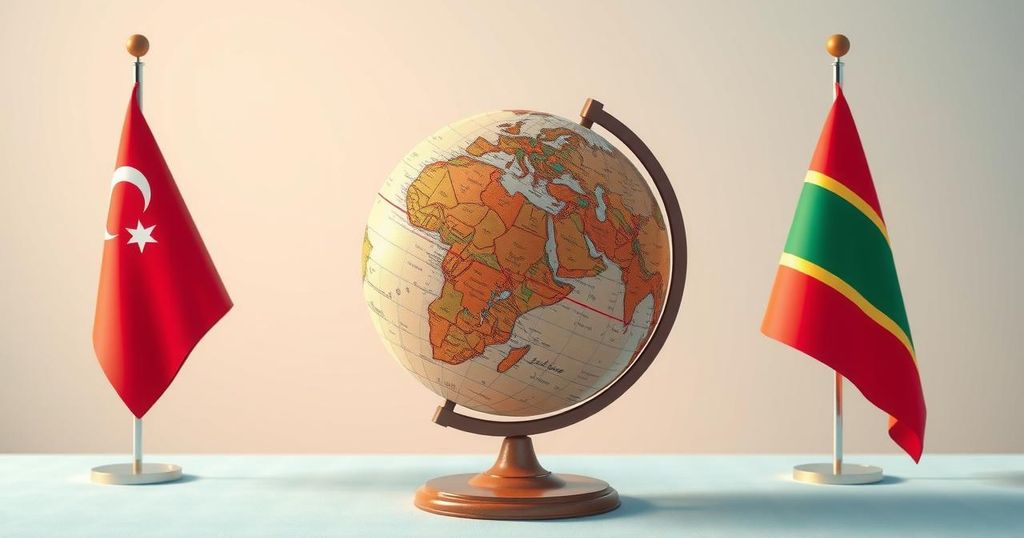This article discusses the increasing accusations by Israeli proponents against critics who question Israel’s influence, particularly focusing on Qatar and Türkiye. It highlights the implications of Sheikh Mohammed bin Abdulrahman Al Tahani’s comments on regional relations and underscores the historical context of Middle Eastern alliances. The piece argues for the necessity of independent foreign policies in the region and concludes with hopes for unified actions against Israeli aggression.
The increasing accusations directed at critics of Israel, alleging they receive funding from Qatar, highlight a troubling trend among certain proponents of Israeli policy. Recent comments by Qatari Prime Minister Sheikh Mohammed bin Abdulrahman Al Tahani concerning a possible assault by Israel and the United States on Iran’s nuclear installations have heightened these accusations. Similar concerns were raised when President Recep Tayyip Erdoğan expressed dissent towards Israel, reflecting the complex interplay of local and international politics, particularly regarding Türkiye’s negotiations with the PKK leadership.
The targeted narrative from Israeli circles against Qatar and Türkiye stems from their evolving alliance, deemed a significant threat to Israel’s geopolitical objectives. This alliance is often overlooked by many who otherwise vocally oppose Israel’s actions against Gaza and the longstanding plight of the Palestinian people. Understanding this dynamic is crucial, as it underscores the complexities of regional politics that transcend simplistic national or sectarian labels, an idea elaborated in Fawaz Gerges’s book, “Making of the Arab World.”
Historically, Israel embodies the enduring legacy of Western imperialism in the Middle East, which has been met with resistance from regional populations. Insights from Tucker Carlson’s interview with Sheikh Mohammed reveal a critical view of the U.S. position regarding regional diplomacy, characterized by misconceptions about local governance and foreign policy. This perspective aligns with U.S. Secretary of State Marco Rubio’s acknowledgment of America’s overreach as it relates to global governance responsibilities.
Qatar’s journey towards establishing independent foreign policy stances has not been without challenges, particularly following the 2017 diplomatic rift during Donald Trump’s presidency. The animosity towards Qatar has roots in its regional reporting, especially related to Palestine, and its negotiations with Hamas, which have exacerbated tensions with the U.S. political establishment. While Qatar has avoided the dramatic upheaval experienced by Türkiye, its advocacy for independent thought continues to provoke hostility from traditional powers.
The fundamental principle emerging from Qatar and Türkiye’s actions is that Middle Eastern nations should not shape their foreign policies to align with Israeli interests. This inherent independence is characterized as intolerable by the Israeli regime, as highlighted by Prime Minister Netanyahu’s assertion regarding the historical disenfranchisement and humiliation of Arab and Muslim identities. Netanyahu’s reflections on nationalism and Islamic movements stress the need to fracture unity within the region to preserve Israeli dominance.
Ultimately, the assertion that Palestinian unity challenges Israel’s strategic aims reflects a fractious dynamic that could lead to a stronger coalition against Israeli aggression. Sheikh Mohammed’s statements hold the potential for fostering unified action among regional allies, signaling a crucial opportunity to resist Israel’s detrimental influence in the Middle East.
In conclusion, the Israeli response to critiques of its policies, particularly towards Qatar and Türkiye, is driven by perceived threats to its regional hegemony. The historical context of their alliance and the independent foreign policies they advocate reflect a significant shift in Middle Eastern politics. As regional leaders like Sheikh Mohammed emphasize self-determination, the hope remains that these alliances can foster meaningful resistance against Israel’s geopolitical maneuvers, ultimately supporting the Palestinian cause and regional stability.
Original Source: www.dailysabah.com




